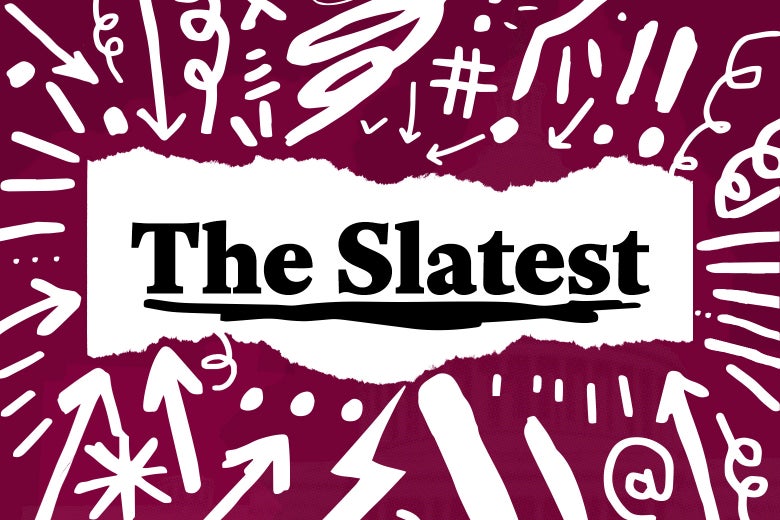Dr. Nuccitelli, welcome to Kreative Circle. What inspired you to become a psychologist? What have you learned about the free-will of humans and accountability in their life?
I wish I had a better reason for what inspired me to become a psychologist. The fact is in 8th grade I fell in love with Suzanne Pleshette. She played the wife on the 70s TV sitcom ”The Bob Newhart Show”. I thought that I needed to become a psychologist like Bob Newhart in order to get a girl like her.
I do subscribe to the idea of free will and accountability in one’s life. Being a practicing psychologist and having worked in behavioral healthcare since the age of 17 years-old, it has become clear that “You Reap What You Sow”. Like all people; I’ve made many mistakes in my life and I have suffered the consequences ranging from insignificant to life changing. The beauty of being human is that we can recognize our mistakes, correct them, make amends and work to prevent them from happening again.
At what juncture of your career did your professional focus gravitate towards the presence of cyberspace and its effects on society?
I’ve always been fascinated by the mind and its complexities. Early in my college years I became quite intrigued by what is called “Philosophy of Mind” and the study of human consciousness. Soon after I wrote my concept Dark Psychology (2006), I began to learn about the new environment called cyberspace. I remember reading that cyberspace was best defined as an abstract artificial electronic environment where people could visit and explore. It was then I realized that the criminal, perverse and angry person could target the innocent and vulnerable. It was not long after writing my Dark Psychology concept that I began to formulate the idea of iPredator.
“Cyberspace can be a classroom, insane asylum, dance floor or lethal weapon. It’s your choice what metaphor you choose.”
What are three action items that individuals can immediately implement to improve their online experience?
1. Digital Citizenship: The responsible and respectful use of Information and Communications Technology (ICT). Being compassionate and respectful online reduces the probability of being targeted by an iPredator.
2. Internet Addiction Assessment: It is not the amount of time a person spends online but whether or not they suffer negative consequences from their usage.
3. Offline Distress Dictates Online Response (ODDOR): Never forget an online user’s offline psychological functioning has a direct effect upon their online actions and how they compile, disseminate and exchange information.
What is a common misconception of becoming a psychologist today?
Becoming a psychologist is an excellent career choice. The only misconception I can think of would be that psychologists are not confined to working in clinics and private practices. Psychologists function in multiple industries providing a variety of work functions. In the not too distant future, psychologists will increasingly be working within the realms of Cyberpsychology, Online Safety, Artificial Intelligence and Virtual Reality.
Your work through ipredator.org educates audiences on how to coexist in cyberspace by engaging as a responsible member of society. Is there a clear distinction between a person being reckless through their decisions & actions versus an individual becoming a victim of external circumstances?
There is a clear distinction. Not being respectful to others online, spending too much time online despite suffering negative consequences and allowing one’s offline state of mind (ODDOR) to negatively skew online behaviors all lead to an increased probability of being targeted or becoming an iPredator oneself. Online users cannot completely rule out being cyber-attacked, but they can significantly reduce their probability of becoming a target. And just as important, they can eliminate ever becoming an iPredator themselves.
What is the best career and life guidance you've received? What is the most insightful critique you've received in your career?
“And this too shall pass.”, “If you don’t have something nice to say, don’t say nothing at all.”, “What goes around comes around.” and “Patience is a virtue.” These are the four mantras I reflect upon frequently. Lastly, my Godmother (Anna Sovik 1911-2004) taught me to always be kind to others. God rest her soul and she was and will always be the most influential person in my life.
What is one book that you've read which you advocate others to read and why?
For those who are Philosophy of Mind, Psychology, Cyberpsychology and Criminal Psychology enthusiasts; I recommend “Without Conscience: The Disturbing World of the Psychopaths Among Us” by Robert D. Hare Ph.D. (1993). Dr. Hare presents an excellent description of the mind of the psychopath. It used a great deal of his work to present my concept of the Online Psychopath.
As an author of 26 Online Cyber Risk Assessments, what do all these assessments have in common?
What differentiates these benchmarks from one another?
All 26 of my checklists and inventories are free to direct download in PDF. No personal information or an email address is required. The primary difference is that the checklists are to confirm an online user’s online safety practices and the inventories are to inquire about an online user’s online safety practices. There is redundancy with many of them given cyber-attack prevention and online assailant identification are typically common sense and/or rooted in human error. Link: Cyber Attack Risk Assessments
What is ODDOR? What purpose does it serve?
Offline Distress Dictates Online Response (ODDOR) is a sub-tenet of iPredator, which posits that offline psychological functioning directly influences one’s online interactions and interpretations. Whether someone is an online assailant, cyber-attack target or both, ODDOR does not discriminate. ODDOR postulates that temporary and long-standing psychological states can significantly taint an online user’s behaviors and interpretations.
Perceptually isolated, ignorance of the existence of ODDOR and experiencing atypical affective and cognitive states increases the probability of being targeted by an online assailant. In addition to being at a greater risk of being cyber attacked, ODDOR influences an online user to partake in destructive and self-destructive online activities.
An online user who is not affected by ODDOR is neither overly idealistic nor fatalistic, but realistic. To reduce the probability of becoming an online target; it is vital to always be aware how one’s state of mind influences one’s online presentation. It is common sense to know that subjective processing is how we perceive and interpret our offline environment. What is not yet understood is how our offline state of mind skews our online activities.
How has the onset of COVID impacted cyberspace behavior? What tips can you offer adults to save their time, energy and resources?
The 8 types of online assailant in the iPredator concept include cyberbullies, cyber harassers, cybercriminals, cyberterrorists, cyberstalkers, online sexual predators, internet trolls, and online child pornography consumers & distributors. The COVID pandemic has led to extended periods of isolation, frustration, anxiety, boredom and stress. I hope I’m wrong but I suspect there will be an increase in Internet Addiction and malevolent online activities by 7 of the 8 types of iPredator. I do not suspect there will be a cyberterrorist attack due to COVID. The best advice I can offer online users can be best summed up by these three points:
“Although the benefits of information and communications technology decisively outweigh damages for society; humanity has been seduced by the notion that more technology translates into a greater quality of life.”
“The modern concept of being “connected” paradoxically makes us less united. The more dependent society becomes upon mobile device technology; the less we know our neighbors and the more it is naively assumed that online associates can be trusted.”
“Comfort the Victims, Educate the Ignorant & Conquer the Corrupt.”
Please share with audiences how they can support your work.
Website: iPredator
Facebook: The iPredator
Twitter: #iPredator
Instagram: drnucc
I wish I had a better reason for what inspired me to become a psychologist. The fact is in 8th grade I fell in love with Suzanne Pleshette. She played the wife on the 70s TV sitcom ”The Bob Newhart Show”. I thought that I needed to become a psychologist like Bob Newhart in order to get a girl like her.
I do subscribe to the idea of free will and accountability in one’s life. Being a practicing psychologist and having worked in behavioral healthcare since the age of 17 years-old, it has become clear that “You Reap What You Sow”. Like all people; I’ve made many mistakes in my life and I have suffered the consequences ranging from insignificant to life changing. The beauty of being human is that we can recognize our mistakes, correct them, make amends and work to prevent them from happening again.
At what juncture of your career did your professional focus gravitate towards the presence of cyberspace and its effects on society?
I’ve always been fascinated by the mind and its complexities. Early in my college years I became quite intrigued by what is called “Philosophy of Mind” and the study of human consciousness. Soon after I wrote my concept Dark Psychology (2006), I began to learn about the new environment called cyberspace. I remember reading that cyberspace was best defined as an abstract artificial electronic environment where people could visit and explore. It was then I realized that the criminal, perverse and angry person could target the innocent and vulnerable. It was not long after writing my Dark Psychology concept that I began to formulate the idea of iPredator.
“Cyberspace can be a classroom, insane asylum, dance floor or lethal weapon. It’s your choice what metaphor you choose.”
What are three action items that individuals can immediately implement to improve their online experience?
1. Digital Citizenship: The responsible and respectful use of Information and Communications Technology (ICT). Being compassionate and respectful online reduces the probability of being targeted by an iPredator.
2. Internet Addiction Assessment: It is not the amount of time a person spends online but whether or not they suffer negative consequences from their usage.
3. Offline Distress Dictates Online Response (ODDOR): Never forget an online user’s offline psychological functioning has a direct effect upon their online actions and how they compile, disseminate and exchange information.
What is a common misconception of becoming a psychologist today?
Becoming a psychologist is an excellent career choice. The only misconception I can think of would be that psychologists are not confined to working in clinics and private practices. Psychologists function in multiple industries providing a variety of work functions. In the not too distant future, psychologists will increasingly be working within the realms of Cyberpsychology, Online Safety, Artificial Intelligence and Virtual Reality.
Your work through ipredator.org educates audiences on how to coexist in cyberspace by engaging as a responsible member of society. Is there a clear distinction between a person being reckless through their decisions & actions versus an individual becoming a victim of external circumstances?
There is a clear distinction. Not being respectful to others online, spending too much time online despite suffering negative consequences and allowing one’s offline state of mind (ODDOR) to negatively skew online behaviors all lead to an increased probability of being targeted or becoming an iPredator oneself. Online users cannot completely rule out being cyber-attacked, but they can significantly reduce their probability of becoming a target. And just as important, they can eliminate ever becoming an iPredator themselves.
What is the best career and life guidance you've received? What is the most insightful critique you've received in your career?
“And this too shall pass.”, “If you don’t have something nice to say, don’t say nothing at all.”, “What goes around comes around.” and “Patience is a virtue.” These are the four mantras I reflect upon frequently. Lastly, my Godmother (Anna Sovik 1911-2004) taught me to always be kind to others. God rest her soul and she was and will always be the most influential person in my life.
What is one book that you've read which you advocate others to read and why?
For those who are Philosophy of Mind, Psychology, Cyberpsychology and Criminal Psychology enthusiasts; I recommend “Without Conscience: The Disturbing World of the Psychopaths Among Us” by Robert D. Hare Ph.D. (1993). Dr. Hare presents an excellent description of the mind of the psychopath. It used a great deal of his work to present my concept of the Online Psychopath.
As an author of 26 Online Cyber Risk Assessments, what do all these assessments have in common?
What differentiates these benchmarks from one another?
All 26 of my checklists and inventories are free to direct download in PDF. No personal information or an email address is required. The primary difference is that the checklists are to confirm an online user’s online safety practices and the inventories are to inquire about an online user’s online safety practices. There is redundancy with many of them given cyber-attack prevention and online assailant identification are typically common sense and/or rooted in human error. Link: Cyber Attack Risk Assessments
What is ODDOR? What purpose does it serve?
Offline Distress Dictates Online Response (ODDOR) is a sub-tenet of iPredator, which posits that offline psychological functioning directly influences one’s online interactions and interpretations. Whether someone is an online assailant, cyber-attack target or both, ODDOR does not discriminate. ODDOR postulates that temporary and long-standing psychological states can significantly taint an online user’s behaviors and interpretations.
Perceptually isolated, ignorance of the existence of ODDOR and experiencing atypical affective and cognitive states increases the probability of being targeted by an online assailant. In addition to being at a greater risk of being cyber attacked, ODDOR influences an online user to partake in destructive and self-destructive online activities.
An online user who is not affected by ODDOR is neither overly idealistic nor fatalistic, but realistic. To reduce the probability of becoming an online target; it is vital to always be aware how one’s state of mind influences one’s online presentation. It is common sense to know that subjective processing is how we perceive and interpret our offline environment. What is not yet understood is how our offline state of mind skews our online activities.
How has the onset of COVID impacted cyberspace behavior? What tips can you offer adults to save their time, energy and resources?
The 8 types of online assailant in the iPredator concept include cyberbullies, cyber harassers, cybercriminals, cyberterrorists, cyberstalkers, online sexual predators, internet trolls, and online child pornography consumers & distributors. The COVID pandemic has led to extended periods of isolation, frustration, anxiety, boredom and stress. I hope I’m wrong but I suspect there will be an increase in Internet Addiction and malevolent online activities by 7 of the 8 types of iPredator. I do not suspect there will be a cyberterrorist attack due to COVID. The best advice I can offer online users can be best summed up by these three points:
“Although the benefits of information and communications technology decisively outweigh damages for society; humanity has been seduced by the notion that more technology translates into a greater quality of life.”
“The modern concept of being “connected” paradoxically makes us less united. The more dependent society becomes upon mobile device technology; the less we know our neighbors and the more it is naively assumed that online associates can be trusted.”
“Comfort the Victims, Educate the Ignorant & Conquer the Corrupt.”
Please share with audiences how they can support your work.
Website: iPredator
Facebook: The iPredator
Twitter: #iPredator
Instagram: drnucc















